
by Jared Lenhart
Table of Contents
Keeping the Focus Where it Matters
The apostolic ministry my family looks after, Frontier Harvest Ministries, which partners with SEAPC (they help us run our admin and finances), is all about unreached peoples. That’s our main focus: working among unreached or unengaged ethnic minorities; it’s always at the forefront. All the other stuff just happens naturally — the food and clothing outreaches, printing, literature, planting house churches — but we just keep our focus where it matters: on the unengaged people who have no known church.
How do we do that? We pray for them. We find ways to send people to them, get “boots on the ground.” Even though we can’t always be there, we can map out where we think they are and get the information into our team’s hands so they can go. We send resources, plan with them, and send them out. That’s our job: always challenging our people to go: “Don’t forget the people who have not yet heard about Jesus. Don’t get stuck in your little church community. Go! And then keep going!”
We have a lot of locations in China where there are churches we’ve planted and people we’re connected with already. We often find that there’s a tribe only two mountains over from them that have never heard the Gospel. Maybe there’s like 800 people in that tribe; it could be really small. The churches nearby have no idea, because they don’t have the information. They’re not online, but we are, and we’re looking for this stuff. After we find it, we send it over to them so they can go.
Sometimes, they won’t find anything. One dude went out for over a month, and told us, “I couldn’t find them! I don’t think they even exist!” When that happened, we had to say, “Whoops! Sorry…” But then you think of other examples, like this random Mongolian tribe we found out about in Sichuan. It’s like they got lost along the way — like Genghis Khan accidentally left them there. We sent some people out, they found them, got a family saved, and they’re starting to disciple them now. Before we told our friends on the ground, they didn’t even know they existed.
Most of the time, they live like 20 minutes from the place! I’d have to sit on a plane, fly 24 hours, and spend $2,000 on a ticket to get there. So if I just give our partners $2,000, they can go out there for two months and get it done themselves. Just don’t rip us off, though — because that’s when I’d come over on a plane and kick your butts…
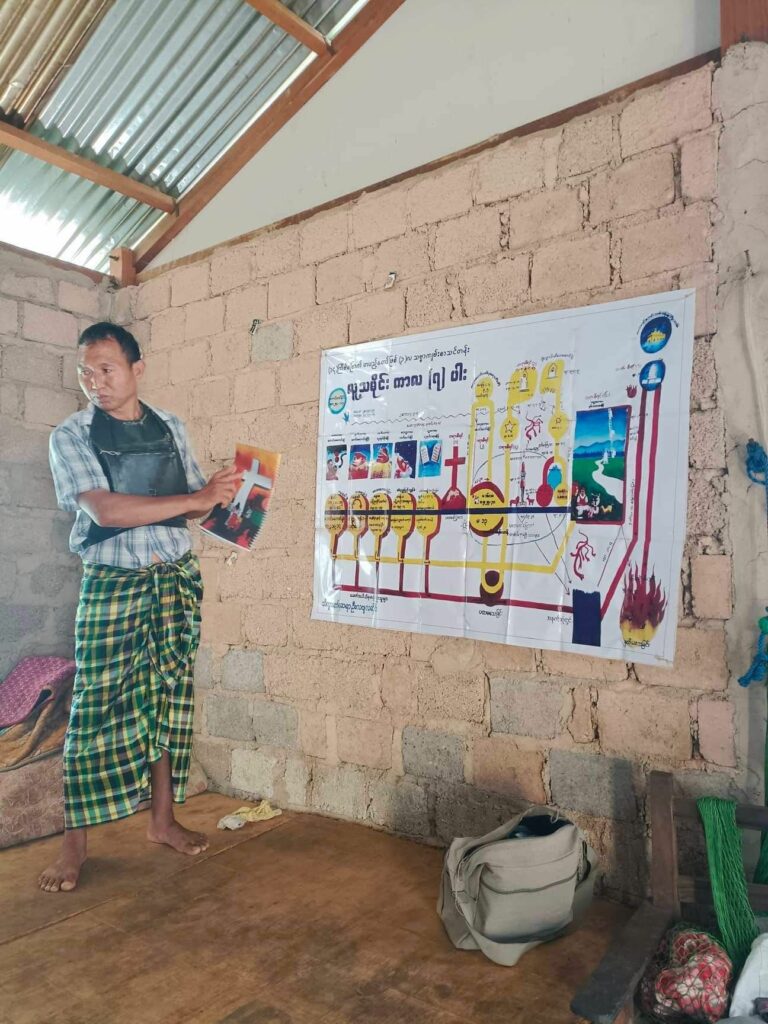
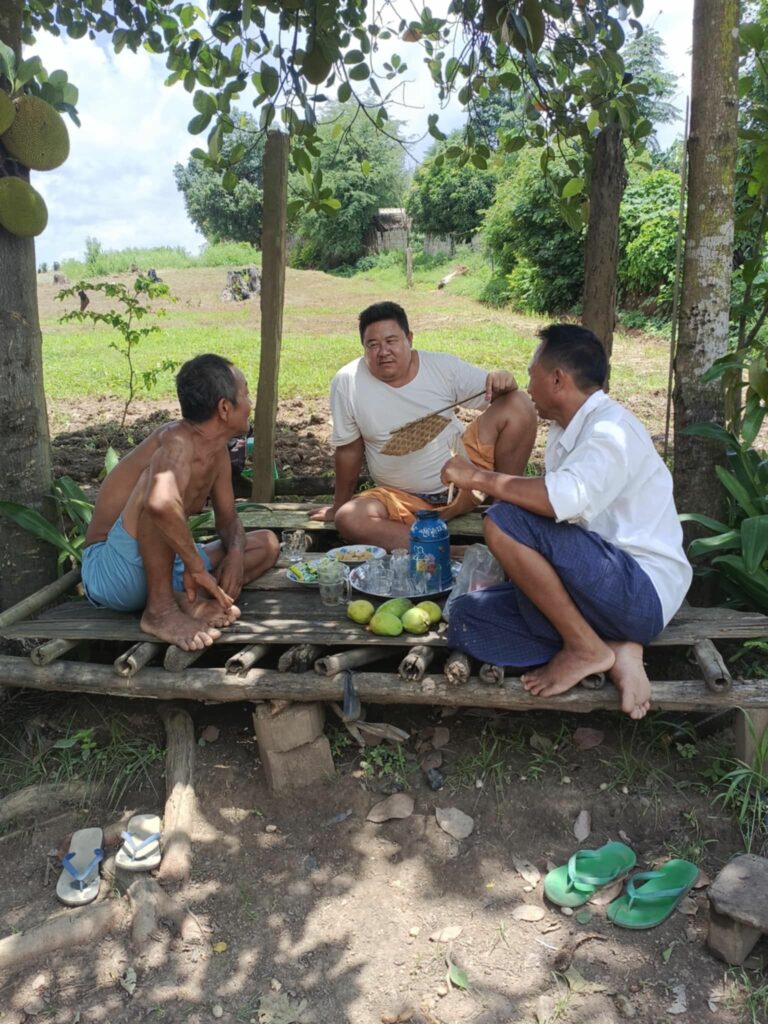
Contextual Ministry: "Men of the Dirt"
We call this sending initiative, Men of the Dirt. They’re the people we put our lives and resources into: our core team. They’re the face of the nation that we get behind so they can do it. They can go to places we can’t, they can get in to talk with locals, and they can reach the tribal people.
Myanmar’s version of Men of the Dirt started through a “coffee shop” we ran (we never actually sold any coffee). We had five guys that lived there — all evangelists — and they had the heart to go out, but they didn’t know what to do. They all graduated from Bible school, but after that they were just waiting on the sidelines. They needed some direction.
So we would have team meetings every week and tell them, “You two, hit up this street this week. And you two go to this street, and you two head to that street. Here’s the money for gas and food. Now get out on your motorbikes. Cruise around and try to bring someone back here on Sunday.”
And that’s the same thing we do now with the current Men of the Dirt. We send them out to these unreached and unengaged places so they can bring new converts — new tribal people — back to centers like that original coffee shop. Nowadays, we get them plugged in to our “Vo-Tech Center” in Lashio, Myanmar (Vo-Tech = Vocational Technical School), so they can learn haircutting or animal husbandry. The main objective is to get them in, make them a church planter, and send them back home to start something in their houses. It’s Gospel training with job creation in between, so it’s doubly useful.
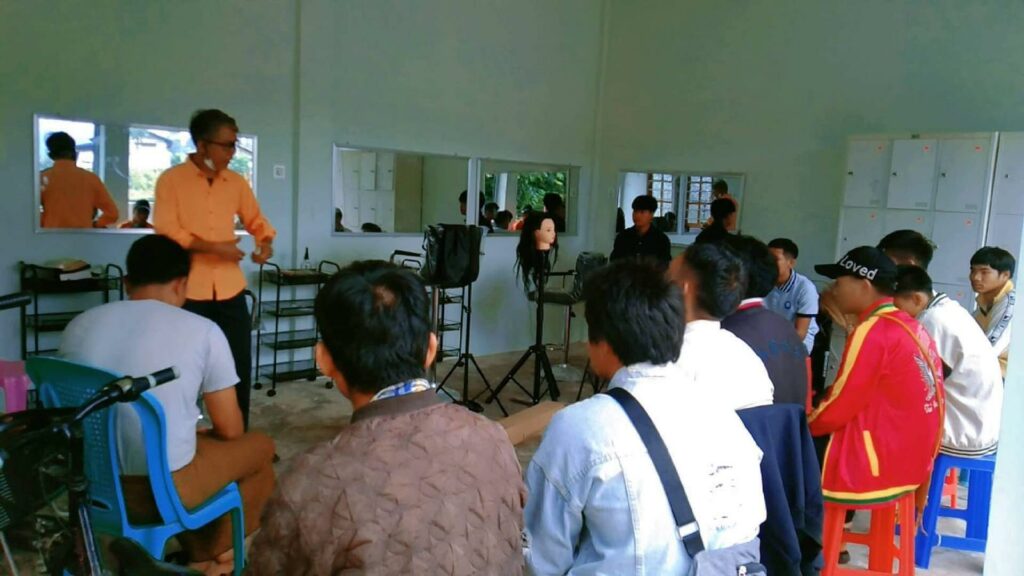
Apostolic Ministry: The Basics
Apostolic ministry is all about the Great Commission: making disciples, seeing people you teach eventually share their testimony and teach other people. That’s what makes us happy. The feeling that, “Aw, man, we put all that time into that guy, and he’s doing it! He’s actually living his life for Jesus now.” There are a lot of people who come and go, so when you see people like that — the ones that stay and grow — making their own decisions, teaching and imparting to others, it’s simple but beautiful.
And that’s what apostolic ministry is: you gotta start something, and then God will move you on. He’ll move you to new places, but you gotta be ready for the change. If you just want to be stuck in one place, you’re not gonna grow. It’s like a pond: every part has to have an inflow and an outflow. If you don’t have the outflow, it’ll just become a stinky pond with no life in it, and die, and grow crappy organisms. But if you have that outflow, the water stays fresh. So you gotta get ready to keep flowing. Once you make a “pond” somewhere, get ready to be apostolic and flow to the next place.
People think “apostles” are some big guy up there doing all the work, or something like that. No, man! Being an apostle is just about building something up and then letting other people do it, and then moving on. It’s about teaching people, preaching to people, being able to pastor, evangelise, prophesy, impart — all of those things — and then move on, and do it again. Rinse and repeat: “Wax on, wax off!”
I only know this because I saw my parents doing it in China, and then I would travel with my dad, and he would teach me all these things, and then I would see them doing it, and then I would learn it, and then I would see them doing it some more, and then I would learn some more. I’ve never been to Bible school. I didn’t go to college. I got through high school all right, but I don’t have a big education. Only the Holy Spirit can teach you these things: you hear and see it in others, and then He teaches you, reminds you, through your life experience.

Apostolic Ministry: Applying Paul’s Example
In 1 Thessalonians 1:4 it says, “For we know, brothers and sisters, loved by God, that he has chosen you, because our Gospel came to you not simply with words but also with power, with the Holy Spirit and deep conviction. You know how we lived among you for your sake.” Paul, Silas and Timothy had to go to Thessalonica so the people could see how they lived, and then they too could live the way they lived. They were an example of Christ to the people.
And then later on it says, “And so you became a model to all of the believers in Macedonia and Achaia. The Lord’s message rang out from you not only in Macedonia and Achaia—your faith in God has become known everywhere.” Other people heard the Gospel through the Thessalonian church, not through Paul — through the Body he inputted into. So that’s what being apostolic means: seeing the people that you input into being able to input into others, and keep going, constantly.
In Mandalay, after three years, we have our core team of around eight people. Every week, we teach them from Zoom. And then they have their own core team. So we’re teaching the core team, and the core team is teaching their core team. It’s like a domino effect, but you gotta keep bringing new people in and letting the core team teach them. Don’t bring them to us any more! We’re done now. You guys are the ones to give it to them. You gotta get them to do it. Don’t get them into the habit of bringing people to you.
Right now, our goal is just to oversee: to make sure things are moving forward and goals are getting reached: that we’re finding those “people of peace” we can open a new house church with. It’s a simple strategy: the team goes and hands out some tracts, and the person who lets them into their house and listens to them — that’s the person of peace. Most likely, in a couple of months, that person’s home will be a house church where people can be baptized and read the Bible together— real simple.
There’s just one catch: you’ve got to be a little careful when it comes to mixing locals, foreigners and money…
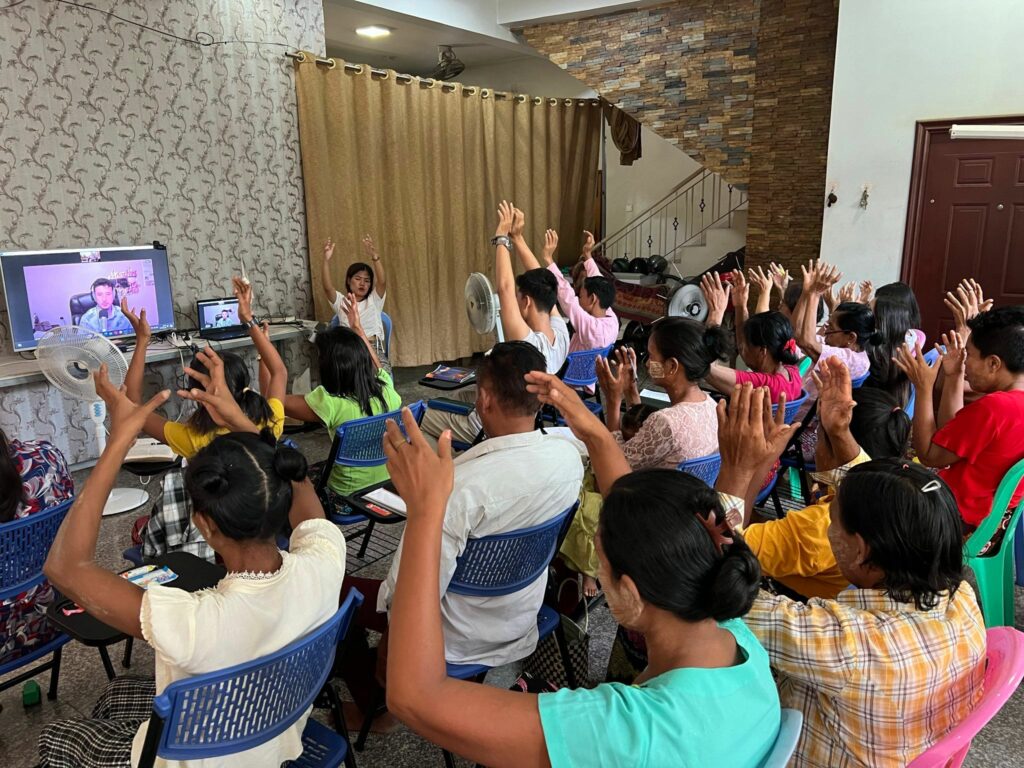
Apostolic Ministry Key #1: Dealing with Corruption
Way back in 2012, we connected with a family in Burma that ran a children’s home. We were still in China, so we had to travel over to meet them. They were a couple from my wife’s tribe — the Lisu tribe — in Lashio, and they only had like 12 kids at the time, in a little bamboo shack. The couple owned the land, and they had space to build and develop it, so our ministry committed to them.
You know, you can’t just go over and say, “Have a good life now! See ya later! We’ll be back next year to take some more pictures!” You gotta do something about it and help them. So we decided to take this couple on full-time. We tried to follow in SEAPC’s footsteps with the children’s programs: raising $50, $100 a month for each child. We made high-quality profiles for all the kids.
Later on, we found out that they were just taking the money; they weren’t putting it into the kids. They weren’t doing what they agreed. The communication was bad. One day, they would say they needed this much, and the next day, this much, and we were sat there thinking, “How did it go from $5,000 to $10,000 in two days?” They told us, “Oh, the prices change… things change…” This went on for about five years.
Eventually, we sent Robin, one of our core team from China, to the children’s home. We told them he was coming. He lived there for two weeks and found out all the crap: all the kids got was rice and soup, and they had to do everything in the property; they were like slaves on the land. The couple didn’t even come to the children’s home; they just sat at home. And they bought other land with the money we gave them: a house, cars, all kinds of stuff. If you want to buy all these things, then communicate with us! Maybe we could have raised some funds for that, but this money was supposed to go to the kids. Why weren’t they eating meat every day? Why weren’t they getting the nourishment they need? And why were they still living in a crappy environment?
After finding all that out, we moved there ourselves to make a sustainable work and to fulfil our promise to the kids — by then, there were about 70 in total. We tried to work with that couple at the start of that time, but when we brought more accountability, they freaked out and gave a bunch of excuses, a bunch of red flags. Eventually, they got up and left because they didn’t want to be part of a team — but other brothers we knew in Mandalay came and found us, and we formed everybody into a core group.
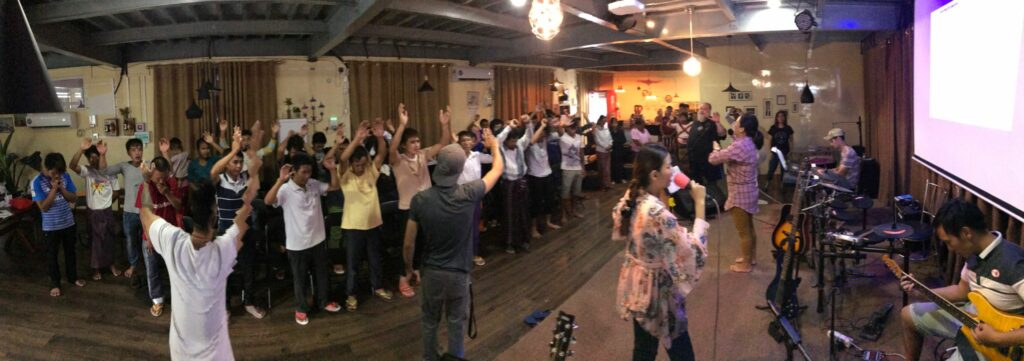
Apostolic Ministry Key #2: Dealing with Broken People
In apostolic ministry, you can’t worry about things like, “Oh, if we get rid of this guy, what’s going to happen? He’s so gifted, so talented. If we fire him or tell him to go home, it’ll slow the process down.” That’s not what we want to do, but we can’t be afraid: don’t think that if you don’t have one person, the work’s not going to get done, because God will bring somebody else, somebody more suitable, to take their place.
We had to deal with that a lot: people who weren’t humble, who were in it for themselves. These are people you love at first. You think they’re really good friends but then, later on, they stab you in the back. We had people steal motorbikes from us, use us to pay their rent, and then leave, and some people even robbed our home! Stuff like that. Petty stuff that can stop you from wanting to serve God, and can make you hate people.
It’s easy to get into the mindset of: “That person’s a Christian?! They ripped me off!” But for the most part, we’ve realized it comes down to: they already had a messed up life. Their background was terrible. They never knew what real love was. So those are the people you deal with that come on your core team: you gotta teach them what real love — Jesus’ love — is. You would think they’d know that as Bible school students, but most of them don’t. Most of them never had a dad who told them he loved them, or a mom.
You’ve also got to give to people to find out who they are. You have to give resources, money, opportunities to work. And slowly, you find out who they are. And then you deal with it: you show them how if there are problems, you face them directly. No gossiping, no going to others, just talking face-to-face. You have to teach people: “This is the biblical way to do it, to have a healthy relationship, to be human.”
In apostolic ministry, you gotta learn how to deal with people. If you can’t deal with people, you can’t serve God. Love one another. He wishes that all would be saved, and none would perish. For God so loved the world… He gave his only Son for people. So that’s the first thing you gotta get in your head before you even go to the mission field: you’ve gotta learn to love people properly.
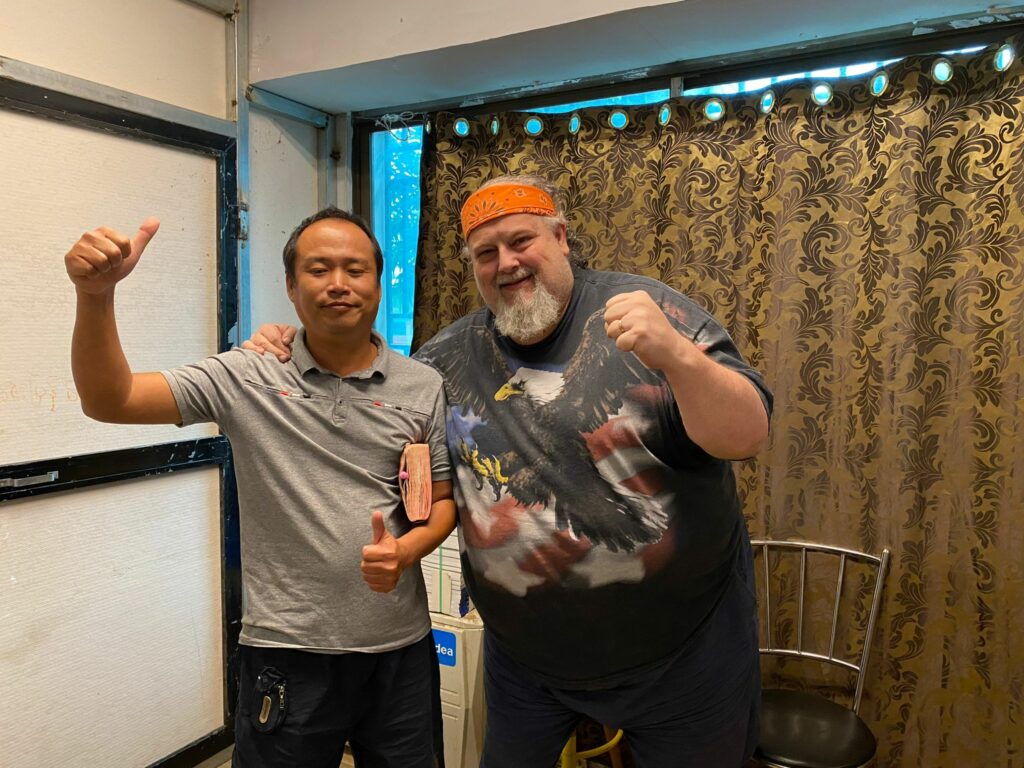
Apostolic Ministry Key #3: Dealing with Broken Culture
In Myanmar, there’s this thing we call Buddha-brain. You gotta get rid of it. It causes confusion. Even when the people become Christians, some of them keep that Buddha-brain mentality: the culture doesn’t go away. Sometimes, you gotta break it out of them, smack them in the face with love, tell them their problem in love, and then show them how to get out of it.
Buddhist culture has no love. Buddhism is not about love. It’s all about works and pleasing others: putting on a fake, false humility. Sure, they walk by, and they have to bow their heads, but they’re also judging you at the same time: “You got more money than me.” Even in my wife’s village, where they’re all Christians, you can see it: it’s all about how you look, how you dress, what kind of house you have. They go to church on Sunday, pay their tithes, listen to the pastor, but it’s all for show.
So you can’t go over there and kiss too much butt; you can’t bow to the culture. You can’t let people step all over you. You gotta have grace when you go into these cultures, but you can’t let them use you. People try to use you for your money. That’s what they think: “Can you come “pray” for this piece of land?” And they really want to show you the land because they think you can help fund a building project there — which is not wrong, but it’s just not what we do. We just say, “Sorry, man, but we can’t do this for you right now.” And then they’re out of there, and they don’t want anything to do with you any more!
Myanmar can be so corrupt. You don’t know if a pastor is just some military slug-ball: his cousin could be in the military, and they’re all paying one another, and they control everything, and even sell drugs to the village. That’s the level of corruption we’re talking about. Even some of the Christian village elders: they’re sitting in the nice seats on Sunday, with their suits and ties, and they’re not even pastors, but they’re doing deals with the Chinese who come into their village, taking bribes and working with the military. Buddha-brain. You gotta deal with it, and you’ve just got to press on.
And one more thing: God can use you even if you don’t know the language! Obviously, it’s better to know the language and understand the culture, because that opens another door to communicate with people. But everything we’ve done in Myanmar has been led by God, and that’s the key. Before we went, we didn’t even know we were going to start a church. We went in and out a couple of times first, and we prayer walked. And we just felt: “This is the place we need to come. There’s a spiritual hunger here.”
I’ll admit: I thought it was crazy then, but I look back now and I can see how God brought the right people, at the right time. When you step out and go and do it — when you hear His voice, and then you do it — it’s a step of faith. He’ll bring the right people to you as you’re doing it. You don’t have to worry about how it’s going to get done. You just have to deal with Buddha-brain when it pops up, with the love of Jesus.
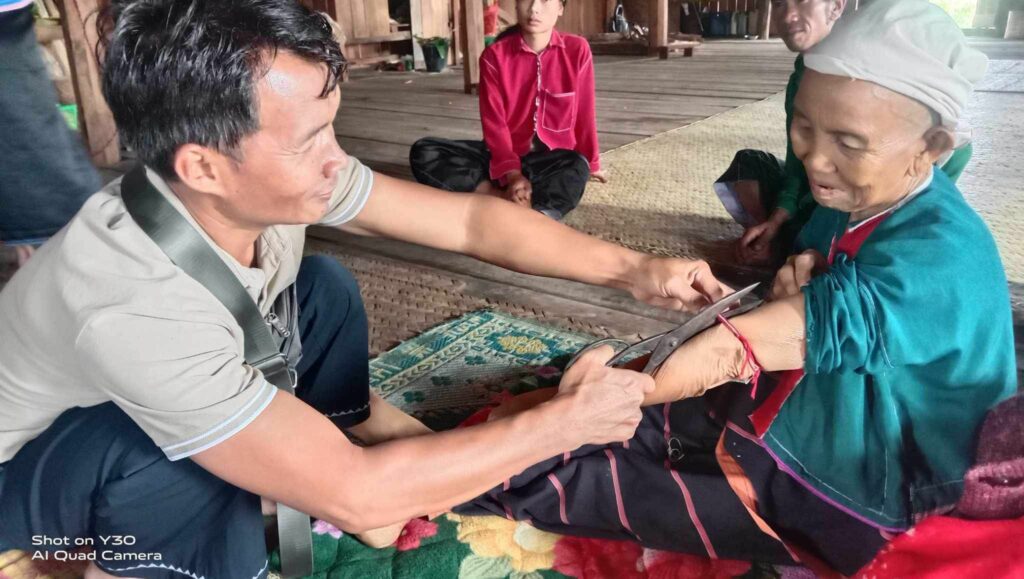
Apostolic Ministry Key #4: Dealing with Misconceptions
At one point, I wanted to do some work in my wife’s village, with the Lisu people. We planned a three-day crusade: we were going to get all the people in. We talked with a bunch of the elders and asked them how much they thought it would cost: “Oh, you need like a thousand bucks…” To them, that was a lot of money, but we figured: “A thousand bucks to reach 200 people, including the drug addicts?! Let’s do it, man!” Of course, the church had the money to do it, but they wouldn’t use it for evangelism — they would use it on their building, or for monthly wages, or whatever.
So I got some guys together, and we had to do a dinner for all of the pastors, and pay for the food. And then one guy found out that we were “tongue-talkers” (we speak in tongues). It turns out this guy had been burned in the past: he went to Korea for Bible School, where they taught him that if you don’t speak in tongues, you’re not born again, and if you don’t speak in tongues, you’re not saved. So he automatically thinks we’re like that — that we’re some kind of cult. He thought, “Oh, they’re going to poison all the people in my village!” And he warned the elders, so they shut our meeting down, one day before we were about to do it. That got us really darn angry.
At times like that, you just have to move on. It’s like trying to pour old wine into a new wineskin. The young people wanted to do it, but in places like Lashio, the village elders control everything; that’s how it works. You have to put everything through them. So if they’re traditional, and they don’t like something: forget about it.
Eventually, they chilled out. They even let us build a centre in their village — my wife’s village. Now, a few years later, because they know who we are through my wife and her family, they’ll come to us for help. It’s because of that relationship that they have been able to see how we help people, and we’re willing to donate stuff. We helped build an eating area for the kids at their school, bought toys, books, that kind of stuff — giving a little money to help out. So over time they could see we weren’t “crazy cult charismatics.” Now they know we have a real heart, and we believe in Jesus.
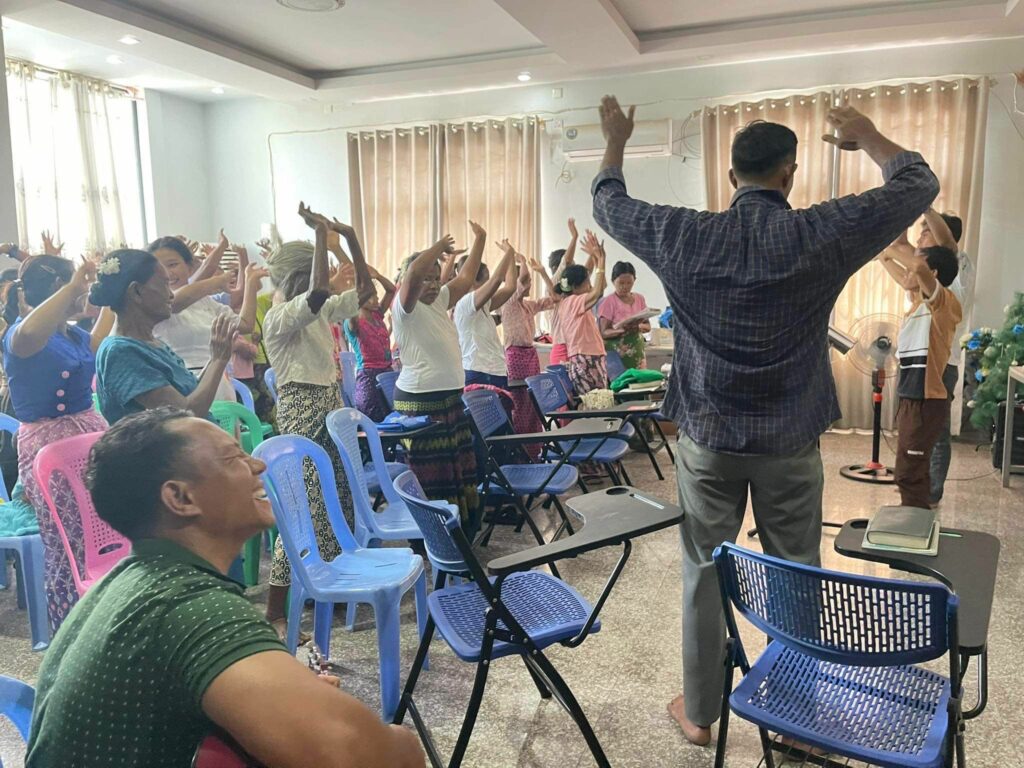
Apostolic Ministry Key #5: Dealing with Your Own Fear
There have been a lot of times that fear came into me. Fear, anxiety, stress. Just trying to do meetings sometimes, knowing that you’re not allowed to do that with locals. Travelling, even. Trying not to get stuck in war zones or go through military checkpoints. Wondering if this person’s going to be the next to rip you off, but trying not to think about it too much! Just things you gotta deal with on the mission field. Controlling your thoughts, having the mind of Christ towards people. Not getting bitter when people leave the team or use the team for their own selfish reasons…
When opposition comes, especially, that’s when the fear comes. When the elders or whoever don’t let you do something, when they say you can’t do it, or they’re gonna go and tell on you… that’s when the fear can come in and hinder you from what you think God is calling you to do — like getting guys to live in our Vo-Tech center…
There was one time when we communicated clearly, and everything was good, but when they came, the village elder got all paranoid because the converts were from another tribe. He was afraid that they were going to cause problems because that tribe was known as more of a “warring tribe.” He didn’t want any trouble in the village. Before they came, he didn’t know they were from that tribe.
So one of our brothers was like, “Oh no! I guess we have to stop now. We have to send them home. It’s done. It’s over.” And we had to be like, “No, dingleberry! No, man! We didn’t bring these guys down from the mountain for nothing! It took them like three days to get here, and you’re just gonna send them home?” It’s times like that that you can’t give into the fear.
So what do you do? You go find another place. Go to a hotel. Go find another brother’s house — which is what we did in this situation. God opened the door. You just can’t give into the fear when it comes. You gotta pray through it. Pray, and find God’s peace on what decision to make because sometimes, when plans change, confusion can come too. Always have a backup plan, or an idea in the back of your mind. Be ready to go with the way you think God wants you to, but have another plan, just in case something goes wrong — and then God will lead you to that plan! You gotta be ready.
And sometimes, you gotta be spontaneous — you gotta make spontaneous decisions. Sometimes, there’s not time to make up a backup plan, so you just pray about it with your team: “OK, which decision are we going to make? You guys feel peace about this? Alright, let’s do that.” And this is all the stuff you learn when you’re out there, just doing it, and living life. You just have to learn it.
After all that, you’re left with the good ones, the ones that stick with you. That’s your core team. It might not be 100 people. Maybe it’ll be like 5, or 10, or however many, but all you need is a handful of willing people to get the job done, to reach the people God wants to reach. You don’t need a lot. You just gotta run the race — run the marathon for Jesus. Paul and all those apostles already crossed the finish line. Right now, it’s our turn to run and try to get there, and bring more people with us along the way: “Let’s go! Come run with me!”
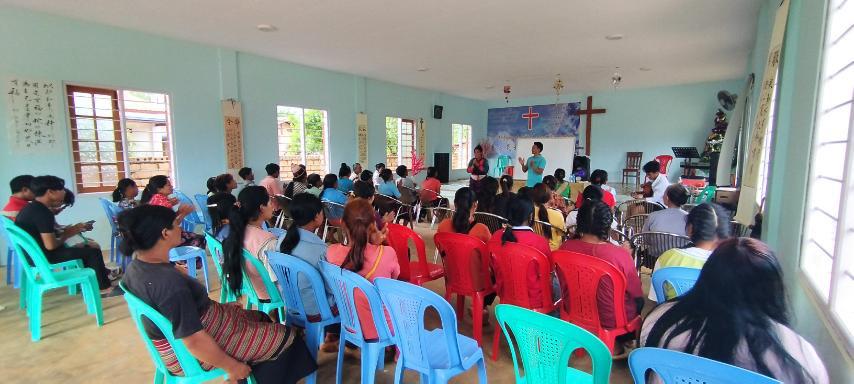
Final Thoughts: It’s a Good Life Serving God
At the end of the day, it’s a good life serving God. People think you’ve gotta give up stuff — and you do: your will, your desires — but people don’t realise that when you do that, He’ll give you better stuff. I didn’t expect to get a wife and a son going to Burma. That’s the last thing I thought about: “Oh, I’m going to leave Burma with a family!” And that’s the best present you can get. When you serve God, He provides everything, but you gotta give your life to Him, and go where He wants you to go, and do what He wants you to do. You have to sacrifice a few things, sure, but if it’s about reaching people and wanting to help the lost, He’ll make a way for you. He’ll make a way every day.
Forget the former things; do not dwell on the past. See, I am doing a new thing! Now it springs up; do you not perceive it? I am making a way in the wilderness, and streams in the wasteland.
Isaiah 43:18-19